

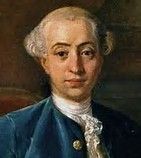
Franz Asplmayr was born in Linz, and it is likely that he was taught violin by his father. Little is known of his early life and formal education, but by 1760 he was working as secretary to Count von Morzin in Vienna. It is now believed that he began publishing his compositions in Paris as early as 1757.
Show more...
Coming from a family of musicians, Sérgio Assad is a living Brazilian composer and guitarist. He and his brother Odair make up the Duo Assad , while his sister Badi is also a professional guitar player. Assad began arranging and composing for guitar at the age of 14, studying guitar with Monina Tavora after the technique and style of Andrés Segovia.
Show more...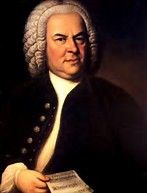
Arguably the most substantial composer of the Baroque period, Johann Sebastian Bach was a bulwark of counterpoint and sacred music. In fact, the time period that we commonly understand as the musical Baroque comes to an end in 1750, as that was when J.S. Bach died.
Show more...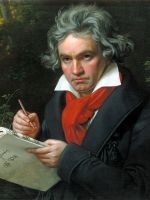
Ludwig van Beethoven was a German composer who remains one of the most celebrated musicians of all time. He is known today for his nine symphonies and 16 string quartets, but he also composed a great number of choral works, song cycles, piano works and pieces for chamber ensembles. Beethoven began composing before his 12th birthday, and his influence helped to bridge the gap between the Classical and the Romantic eras of music composition. His work is often divided into three periods, as his technique changed with time and age.
Show more...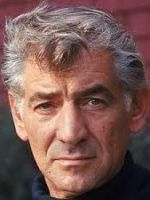
Leonard Bernstein was the first American-born conductor to achieve a truly international status. Born to Russian-Jewish immigrants at the end of World War I, Bernstein lived the American Dream. He flourished at school, went on to Harvard and from there to the Curtis Institute. He spent summers at the Tanglewood festival as assistant to Serge Koussevitzky.
Show more...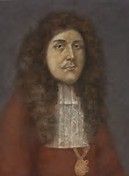
Born in what is now the Czech Republic, Bohemian composer Heinrich Ignaz Franz von Biber began his musical training under organist Wiegan Knöffel. Biber became a member of Prince-Bishop Karl Lichtenstein-Kastelkorn’s orchestra (as a violinist) at Kremsier by 1668. In 1670, the Prince-Bishop of Olmütz sent Biber to his friend Jakob Stainer, a luthier, in order to obtain more instruments for the orchestra’s use. While staying with Stainer in his home near Innsbruck, Biber attained employment in Salzburg in the chapel of the Prince-Bishop Maximilian Gandolf von Khünberg.
Show more...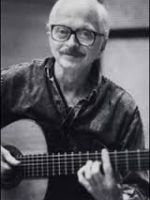
Perhaps best known for the music he composed for the film Orfeu Negro (Black Orpheus), Luiz Floriano Bonfá was a guitarist and composer from Brazil. He began to play the guitar at a young age, and studied under Isaías Sávio for most of his youth.
Show more...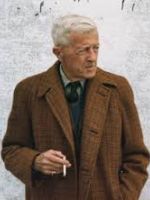
Novelist and composer Paul Bowles was man of the hour in New York musical circles of the 1940s. He was also man of the hour in American literary circles of the 1950s. Much of this has since been forgotten, however, and he has fallen into obscurity in both fields. As a friend and disciple of Aaron Copland, Bowles accompanied the older composer to Morocco for a while. The two then travelled to Paris, where they became acquainted with Virgil Thomson. Bowles remained in Paris for a short time, studying there with Copland, Thomson and Nadia Boulanger.
Show more...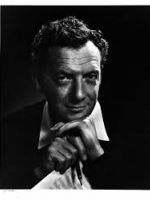
Perhaps the most prolific and recognised composer of the post-World War II generation, Benjamin Britten’s work has a sobriety and modernity that is instantly identifiable. Brought up by a typically austere English family, Britten was sent to boarding school and began to compose at a young age. From the age of twelve he spent his school holidays studying with composer Frank Bridge, going on to the Royal College of Music and studies with John Ireland and Arthur Benjamin. Britten became fascinated by the techniques of Mahler and Walton, though he shunned the music of Elgar and Vaughan Williams.
Show more...__small.jpg)
Juno nominated Cris Derksen is an Internationally respected Indigenous Cellist and Composer. In a world where almost everything — people, music, cultures — get labelled and slotted into simple categories, Cris Derksen represents a challenge. Originally from Northern Alberta she comes from a line of chiefs from NorthTall Cree Reserve on her father’s side and a line of strong Mennonite homesteaders on her mother’s. Derksen braids the traditional and contemporary, weaving her classical background and her Indigenous ancestry together with new school electronics to create genre-defying music.
Show more...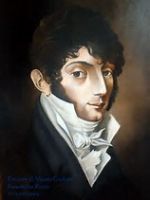
Mauro Giuliani was the foremost guitarist of his generation. Born in Bisceglie, his early training (on the cello) was in the town of Barletta. Though he never abandoned the cello entirely, Giuliani quickly focussed his efforts on the guitar. He married around the turn of the 19th century, and he and his wife and young son moved to Vienna in 1806 on the heels of some excellent reviews that had reached Austria.
Show more...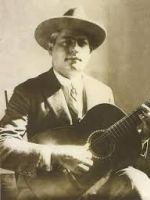
João Teixeira Guimarães was known as “Pernambuco”, as that was the area of Brazil he represented musically. Born in Pernambuco, Guimarães relocated to Rio de Janeiro in 1891 when his mother remarried after his father’s death. He began composing in his late teens, finding inspiration in his working life as a blacksmith.
Show more...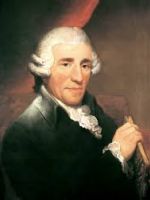
Showing signs of musical capacity at an early age, Franz Joseph Haydn was sent to live with an educated relative in Hainburg. He learned singing, harpsichord and violin, and at the age of eight was recruited to the choir of St Stephen’s in Vienna (now known as the Vienna Choirboys.) There he received his rudimentary musical education, and he went on to teach himself music history and composition by studying Fux, C.P.E. bach and more. He started teaching harpsichord lessons, soon becoming teacher to a Countess.
Show more...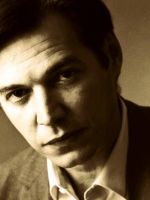
Antônio Carlos Jobim was a 20th century Brazilian pianist, composer and guitarist. He began his professional career playing piano in beach bars in the Copacabana and Ipanema areas in the 1940s. He soon became an arranger for a recording label, which led to his appointment as artistic director of the Odeon label in 1956.
Show more...
A young singer and composer from Edmonton, Bryce Kulak is enjoying critical acclaim in musical circles around North America. He has sung with the Edmonton Symphony and Quartetto Gelato.
Show more...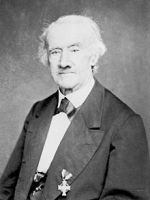
Cellist Friedrich August Kummer began his musical career as an oboist. Following in his father’s footsteps, he took up a position as an orchestral oboist at the court in Dresden. Kummer was primarily a cellist, having been appointed to the Royal Opera House by Carl Maria von Weber. When the principal cello position in the court orchestra was vacated by the death of Karl Höckner, Kummer stepped in. A contemporary of Mendelssohn and Schubert, Kummer performed chamber music with Schubert’s son (also named Franz) and in string quartets with Mendelssohn.
Show more...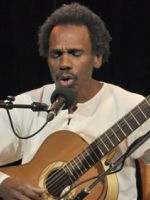
Celso Machado is a composer and instrumentalist from Brazil who lives in Canada. Machado began to play guitar in street bands at the age of seven, and formed a guitar quartet with three of his five brothers in the early 1970s. He works widely with World-Music organisations here and abroad, having played with the Assad Brothers, Peter Finger and others.
Show more...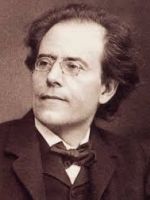
Raised in a small German-Jewish town in what is now the Czech Republic, Gustav Mahler’s music is heavily influenced by the First Viennese School of composition. Mahler became interested in music at a young age, and though his family was Jewish, he joined the choir at a local Catholic church, receiving instruction from the choir director. His musical talent was discovered by a rich patron when he was a teenager, and he was brought to the Vienna Conservatory to study Julius Epstein, a friend of Johannes Brahms.
Show more...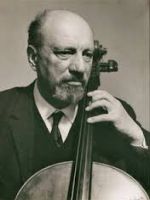
Rudolf Matz was a 20th century Croatian composer, cellist and teacher. A very active conductor and member of the musical community of Zagreb, Matz also composed over 500 pieces in his lifetime. His works for cello were often meant to instruct or to demonstrate technique, and his unconventional quartet for four cellos is unique in its treatment of the first cello.
Show more...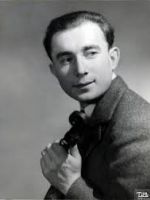
Born in Canada and raised in the United States, Colin McPhee was a composer who explored the world in his life and music. He studied piano and composition in Canada, the United States and Europe. His first piano concerto was premiered by the Toronto Symphony Orchestra in 1924. When he settled briefly in New York, he produced a Sea Chanty Suite and some music for experimental moving pictures. It was at this point that McPhee heard a recording of the gamelan (a Balinese melodic percussion instrument) and decided to continue his musical exploration in that country.
Show more...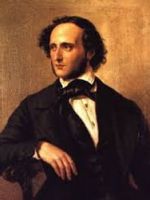
Felix Mendelssohn was born in Hamburg to a well-educated family. His paternal grandfather was a Jewish philosopher and contemporary of Immanuel Kant, while his maternal grandfather was a Court Jew in the court of Friedrich the Great of Prussia. Felix and his siblings were secretly baptised into the Protestant Christian faith in 1816, and in 1822 they were advised to start using the name Mendelssohn-Bartholdy (after a family farm) in order to distance themselves from the Jewish surname Mendelssohn.
Show more...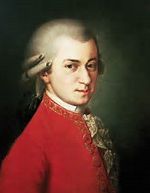
Wolfgang Amadeus Mozart is perhaps the most recognisable name in Classical music. Son of the inflexible and exacting Austrian composer Leopold Mozart, Wolfgang was considered a musical prodigy. He played the clavichord by the age of three and even composed short pieces by the time he was four. He and his sister Nannerl (the only two surviving children of seven) were paraded before the world as musical wunderkinds, spending three whole years touring Europe to amaze and delight the Royal houses of France, England, Holland and Germany.
Show more...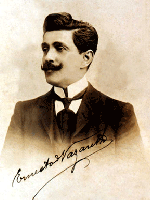
Ernesto Nazareth was a Brazilian composer who lived in the late 19th and early 20th centuries. He began his career working at cafes and parties, playing his way through every piano piece available. Nazareth’s early compositions were influenced by his great love of the music of Frédéric Chopin, but by the end of the 19th century he was composing only in the local popular dance forms of Brazil.
Show more...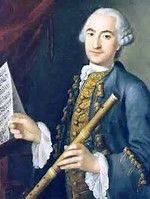
Best known for his widely-distributed treatise On Playing the Flute, Johann Joachim Quantz was a well-rounded musician. He sang, played oboe, violin, trumpet, viola da gamba and pretty much everything else. With both of his parents dead before he was ten, Quantz was sent to live with an uncle in Merseburg. His uncle Justus was a musician who began to instruct the boy, but he also died within the year.
Show more...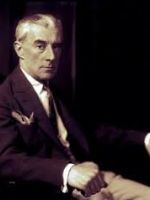
Considered to be one of the founders of musical impressionism, Maurice Ravel was raised in Paris at the turn of the 20th century. He was considered an intelligent and capable musician at a young age, but his laziness in practising piano caused his father to find incentive for him to continue his studies. After receiving one franc for every thirty minutes of practice, Ravel was convinced to advance in his field. He began to take harmony lessons and his tastes were refined over the years.
Show more...
Toronto composer James Rolfe (b. Ottawa, 1961) has been commissioned and performed by ensembles, orchestras, choirs, and opera companies in Canada, the USA, Europe, and New Zealand. His work has been recognized with a Guggenheim Fellowship (2000), the K. M. Hunter Music Award (2003), the Louis Applebaum Composers Award (2005), the Jules Léger Prize for New Chamber Music (2006), and SOCAN’s Jan V. Matejcek Concert Music Award (2009), and the 2014 Outstanding Choral Work Award from the Association of Canadian Choral Communities.
Show more...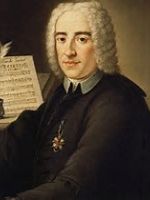
Pietro Alessandro Gasparo Scarlatti (dit Alesssandro) was born in Palermo but raised in Rome. It is not known who Scarlatti’s formal musical tutors were, but by the age of 19 he was a married father and already producing his first large-scale Oratorio, commissioned by the Arciconfraternità della Santissimo Crocifisso.
Show more...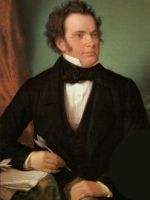
Franz Schubert was a native of Vienna, and composer of over six hundred lieder, as well as symphonies, operas, chamber music and more. He began to compose as an adolescent, but following the death of his mother, he trained as a schoolteacher in order to make ends meet. The early compositions of Schubert displayed the influence of fellow Austrian composers Joseph Haydn and Wolfgang Amadeus Mozart, whose canon was integral to the development of the young composer’s technique.
Show more...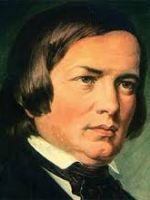
German composer Robert Schumann was introduced to the public at the age of eleven, when he and his brother Karl began performing as pianists and actors at the Zwickau Gymnasium.
Show more...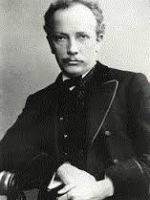
Richard Strauss enjoyed a long life and a prolific career as a representative of the end of the Romantic era. Coming from a musical family, Strauss quickly rose in the ranks of musical Munich after composing his first works at the age of six. Richard Strauss was raised on the music of Haydn, Mozart and Beethoven, and though he began his career writing lieder and chamber music, he soon became interested in orchestral works.
Show more..._vanhal-wanhal__small.jpg)
One of the Bohemian composers who thrived in Austria, Vanhal is often ignored in the annals of Classical music. He was an autodidact as a teenager, teaching himself organ, violin and cello. When he reached adulthood, a rich noblewoman from his village near Prague sent him to Vienna to study with Karl Ditters von Dittersdorf.
Show more...Brazilian composer Heitor Villa-Lobos is the most renowned composer from his country. Born in 1887 in Rio de Janeiro, Villa-Lobos was raised by a librarian and strict educator. The composer split his time between his two favourite instruments – the cello and the guitar. After formal schooling in Western art music and in the popular music of Brazil, Villa-Lobos taught himself to compose music for the piano. He married Lucília Guimarães, a pianist of some fame, who premiered his pieces throughout the 1910s and 20s.
Show more...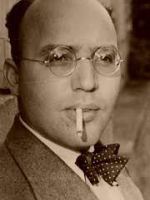
Kurt Weill is perhaps best known for his satirical work and collaborations with the like of Ira Gershwin, Langston Hughes and Ogden Nash, but his story began long before those illustrious projects. Weill was the son of a synagogue cantor in Germany in the early 20th century. As you might imagine, that was not an easy time to be a Jewish artist. His father was a minor composer in his own right, and he encouraged Weill’s musical education.
Show more...